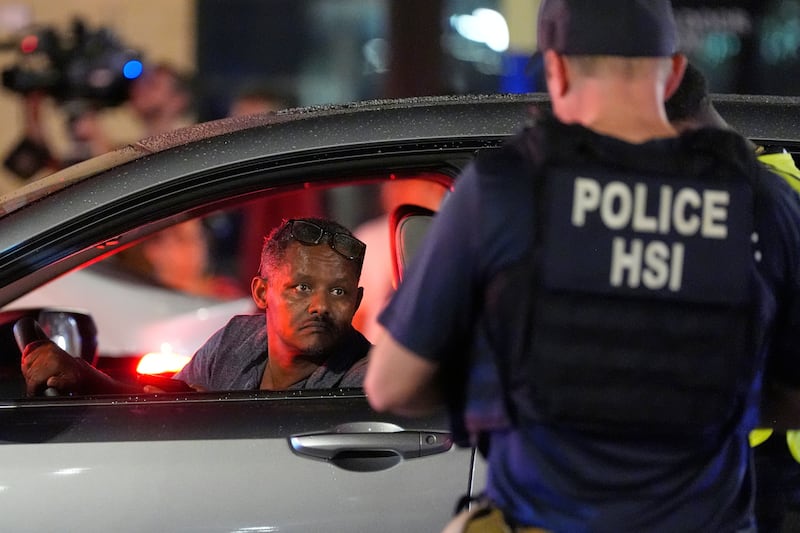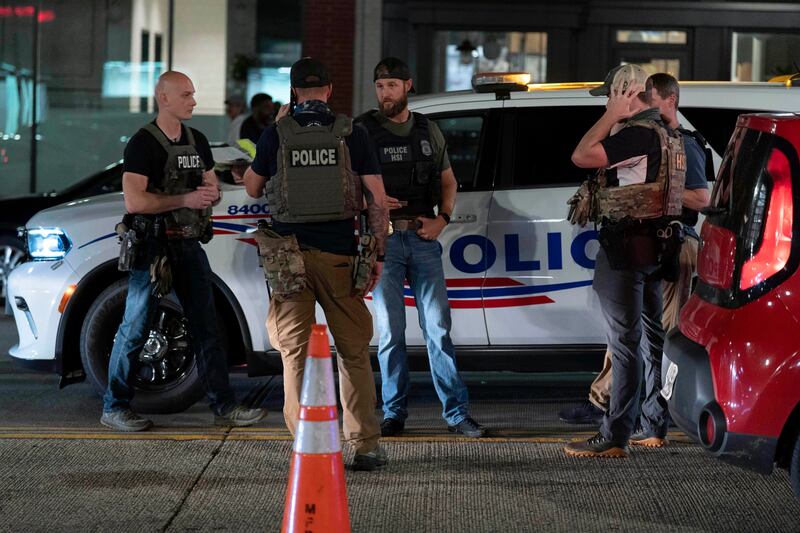WASHINGTON — Police officers in Washington, D.C., can now notify federal immigration officials if they encounter immigrants living in the country illegally, possibly setting them up for arrest regardless of whether the individual was charged with a crime.
Metropolitan Police Department Chief Pamela Smith issued an executive order on Thursday allowing local police officers conducting traffic stops to inform Immigration and Customs Enforcement agents about immigrants lacking permanent legal status — a marked departure from current city policy that limits cooperation with federal immigration enforcement.
The order would also allow local officers to provide “transportation for federal immigration agency employees and detained subjects,” according to a copy of the order obtained by the Deseret News.
The updated guidance provides a carveout for local police to cooperate with federal agencies after President Donald Trump signed an emergency order on Monday federalizing the D.C. police department and taking control of the city’s public safety operations.
But the police executive order upholds several restrictions currently in place for local officers. It states that officers cannot ask an individual their immigration status “for the purpose of determining whether they have violated the civil immigration laws” or to research the individual’s immigration status through federal databases.

Officers cannot detain individuals “based solely on federal immigration warrants” if the person would otherwise have been released after the encounter. After a release, officers would be prohibited from providing federal immigration agents with information related to the immigrant such as the date and time of their release, address, identifying information, photograph, or criminal case details.
But the changes come as Trump administration officials have vowed to crack down on crime and illegal immigration in Washington, D.C. — even going so far as to declare the city’s “sanctuary” status as being revoked.
“D.C. under federal control is not going to be a sanctuary city,” Tom Homan, who acts as the Trump administration’s border czar, told Fox News on Wednesday.
Hundreds of National Guard troops began arriving in Washington on Tuesday, with a total of 800 soldiers expected to patrol the city by next week.
President Donald Trump took federal control of the city by invoking a rarely used statute that allows the president to oversee the city’s law enforcement on a temporary basis. The order would expire in 30 days unless explicitly extended by Congress.
That’s unlikely to happen as it would require Democratic support in the Senate. As a result, Trump suggested he might look at other ways to extend federal presence in the capital without congressional approval.
One way to do that, he said, is by declaring a national emergency.
“If it’s a national emergency we can do it without Congress, but we expect to be before Congress very quickly,” Trump said.
“I don’t want to call a national emergency,” Trump noted, but said: “If I have to, I will.”
The latest threats highlight an ongoing challenge for D.C. officials, who have been trying to crack down on rising rates of youth crime. Since the beginning of 2025, juveniles have made up more than 50% of arrests related to carjacking, according to D.C. police. A majority of those arrests are made up of teens who are 15 and 16 years old.
Still, crime rates in the city overall have gone down over the last year, according to statistics from the MPD. Violent crime, for example, has decreased by 26% compared to this time last year.
Trump also announced that his administration would begin removing homeless people from their encampments across the city and take them elsewhere, although it’s not entirely clear where they will go.
“We’re going to be removing homeless encampments from all over our parks, our beautiful, beautiful parks, which now a lot of people can’t walk on, they’d be very, very dirty,” Trump said.
Trump also suggested D.C. is just the beginning of his efforts to crack down on crime in major cities, telling reporters on Monday that “we’re starting very strongly with D.C., and we’re going to clean it up real quick.”
“We have other cities also that are bad, very bad. You look at Chicago, how bad it is. You look at Los Angeles, how bad it is. We have other cities that are very bad,” Trump said. “New York has a problem. And then you have, of course, Baltimore and Oakland. … They’re so far gone. We’re not going to let it happen. We’re not going to lose our cities over this. And this will go further.”



